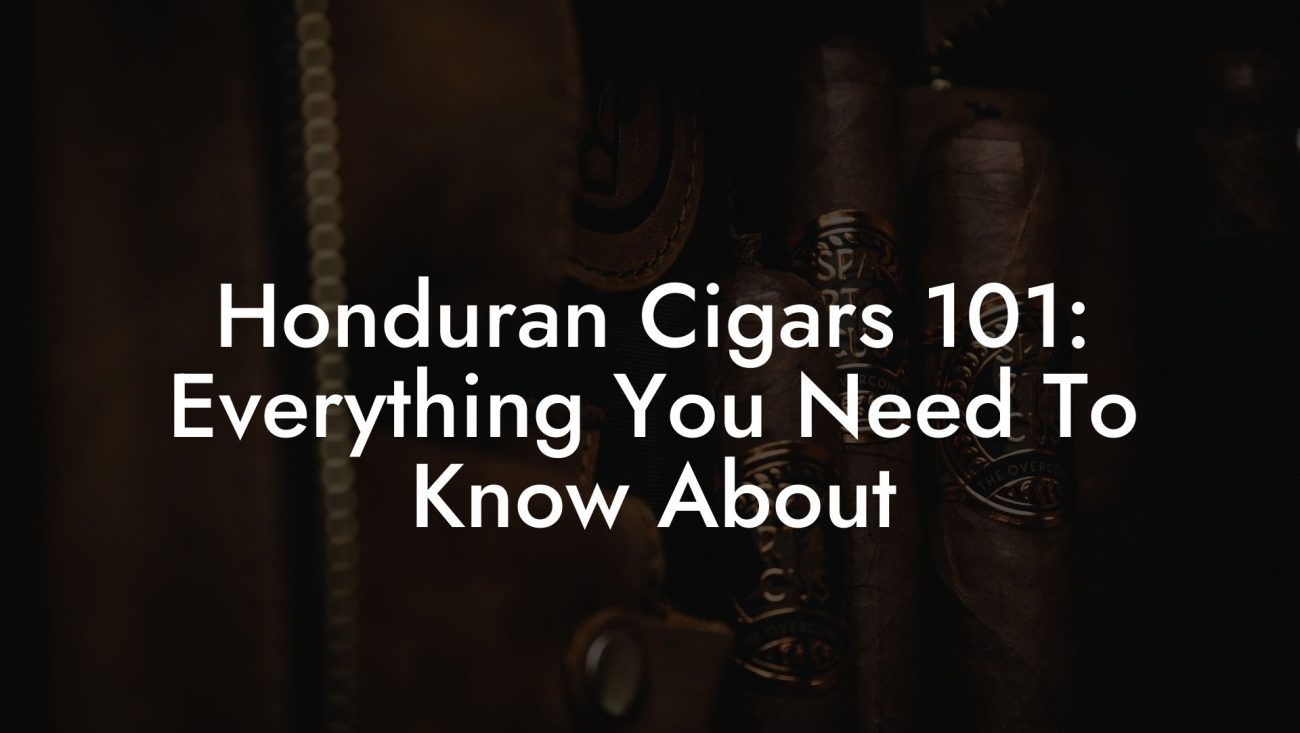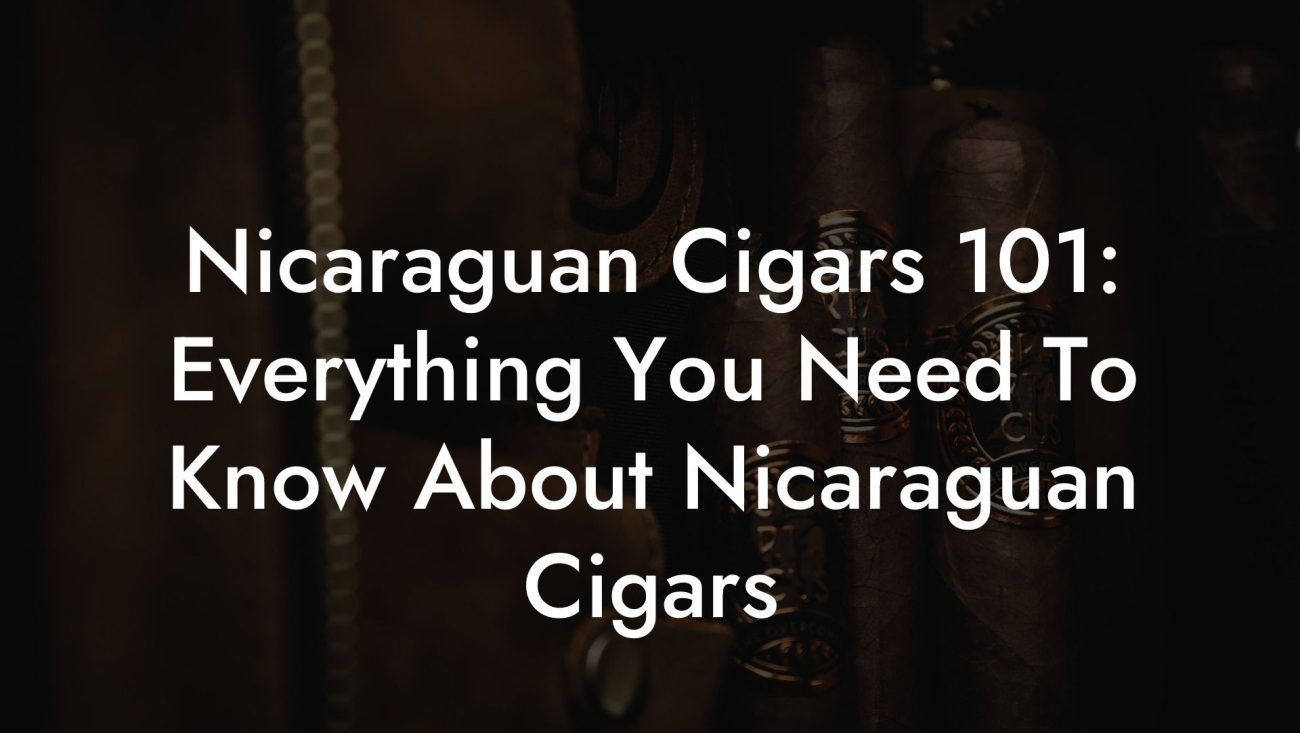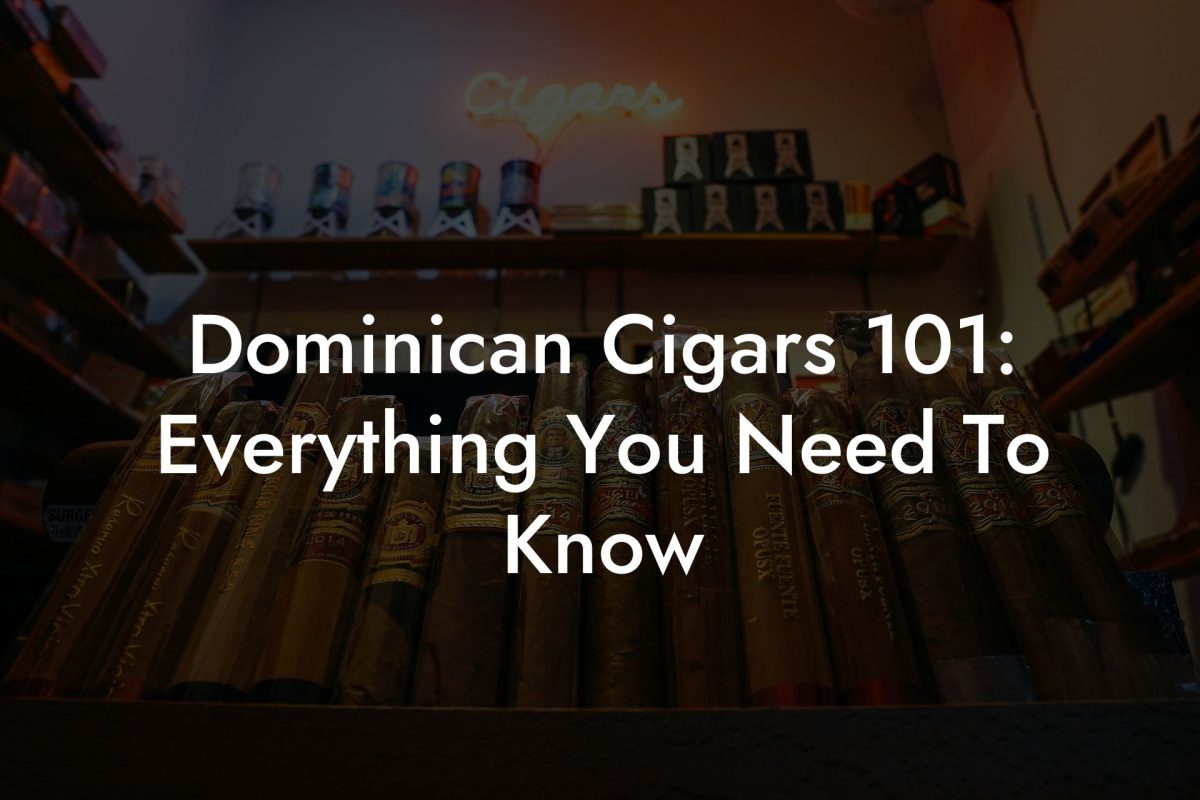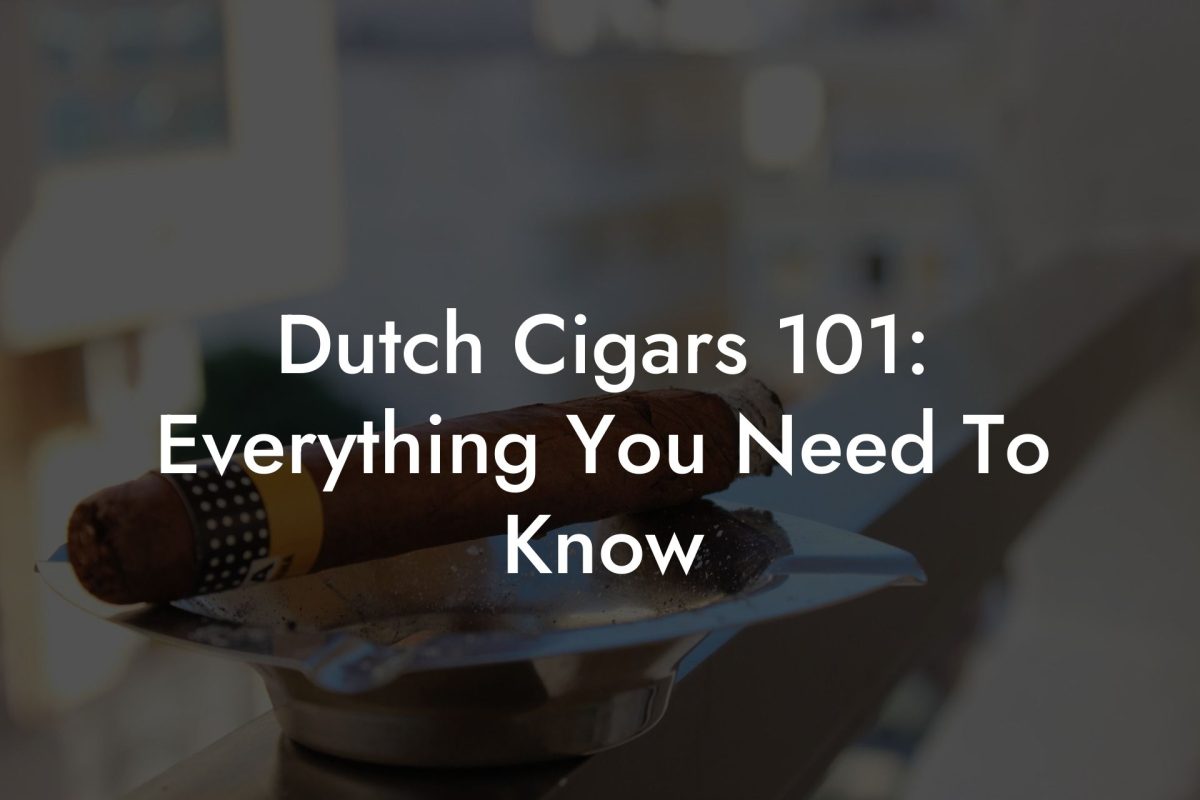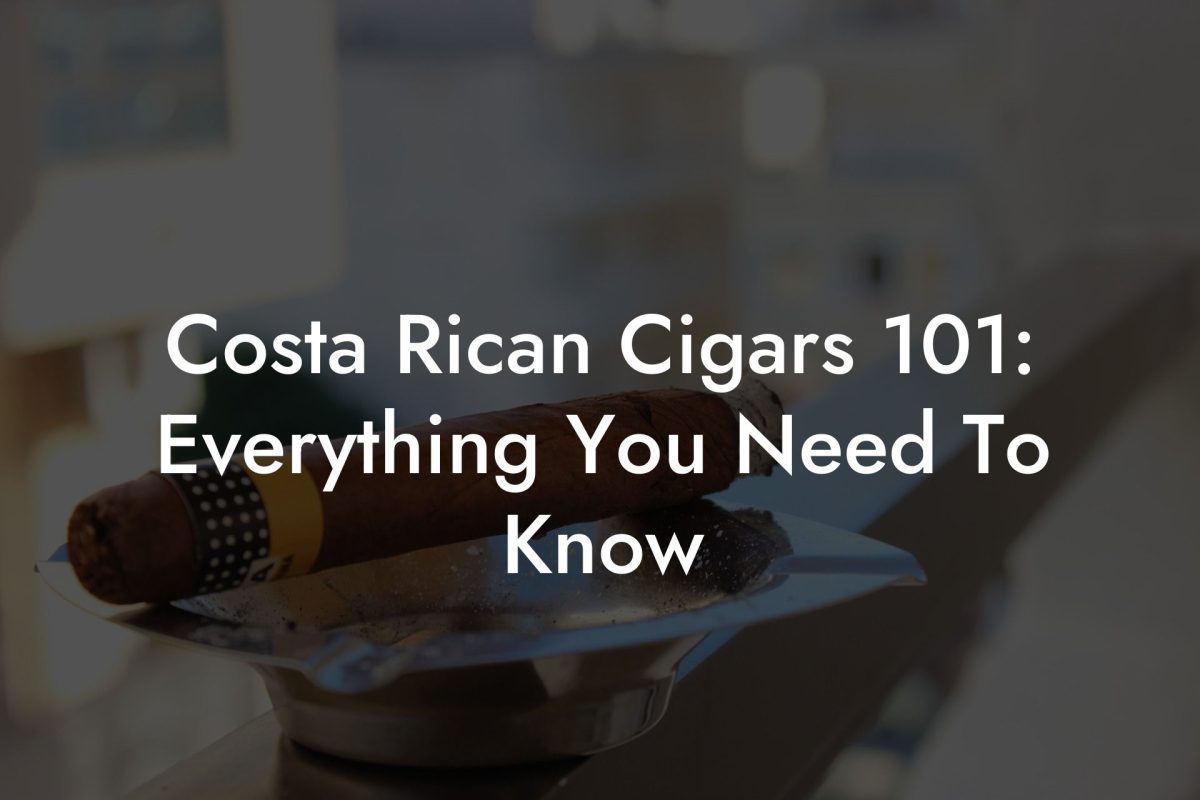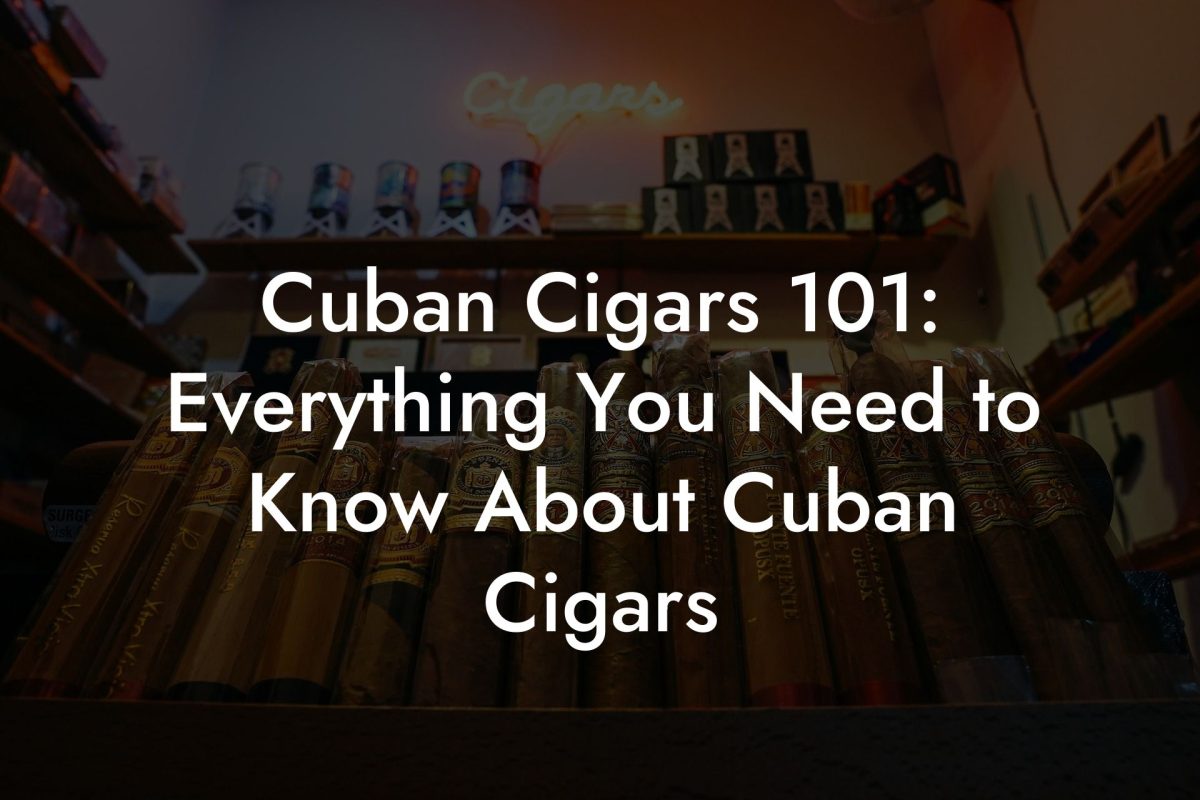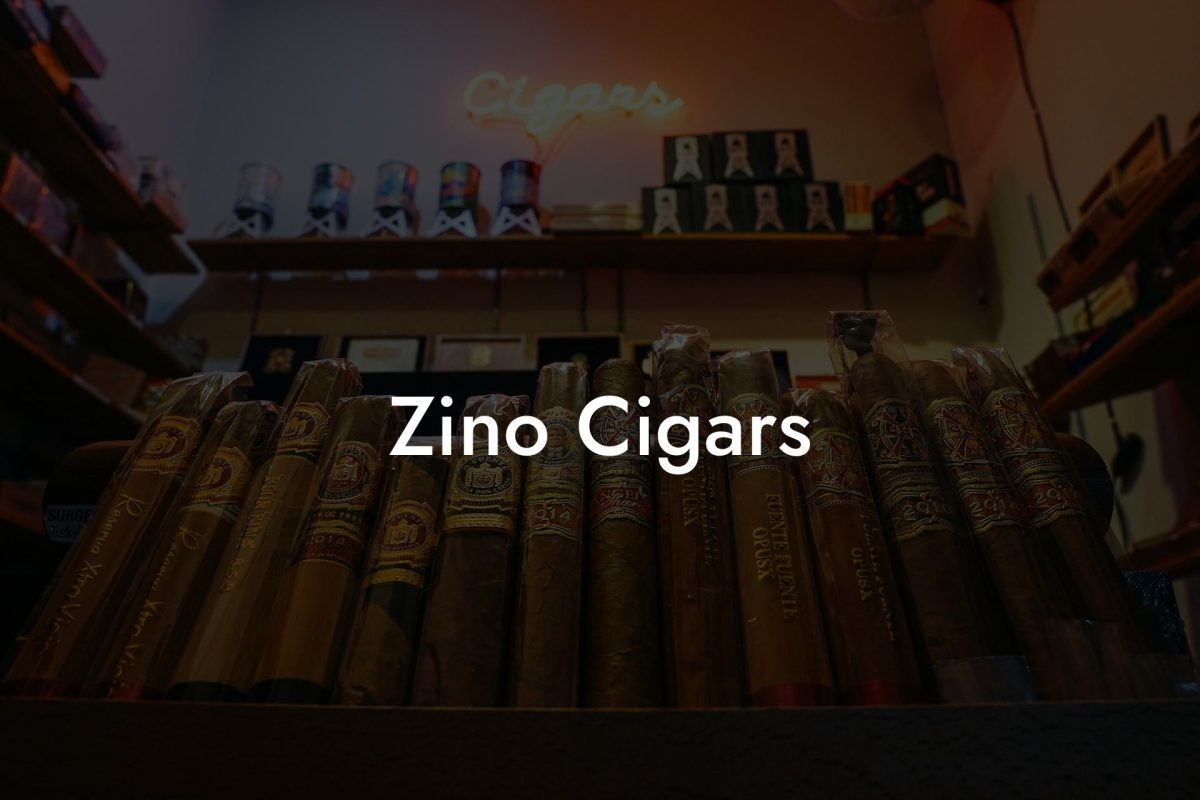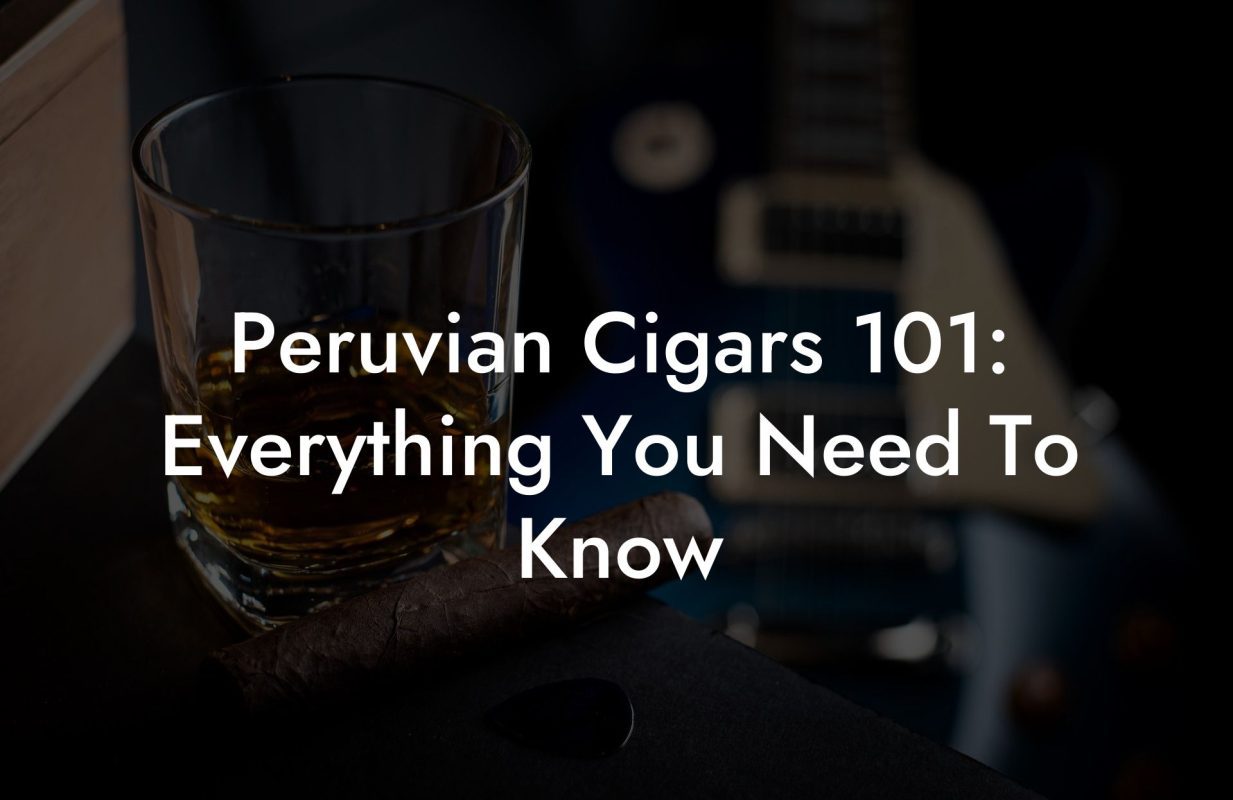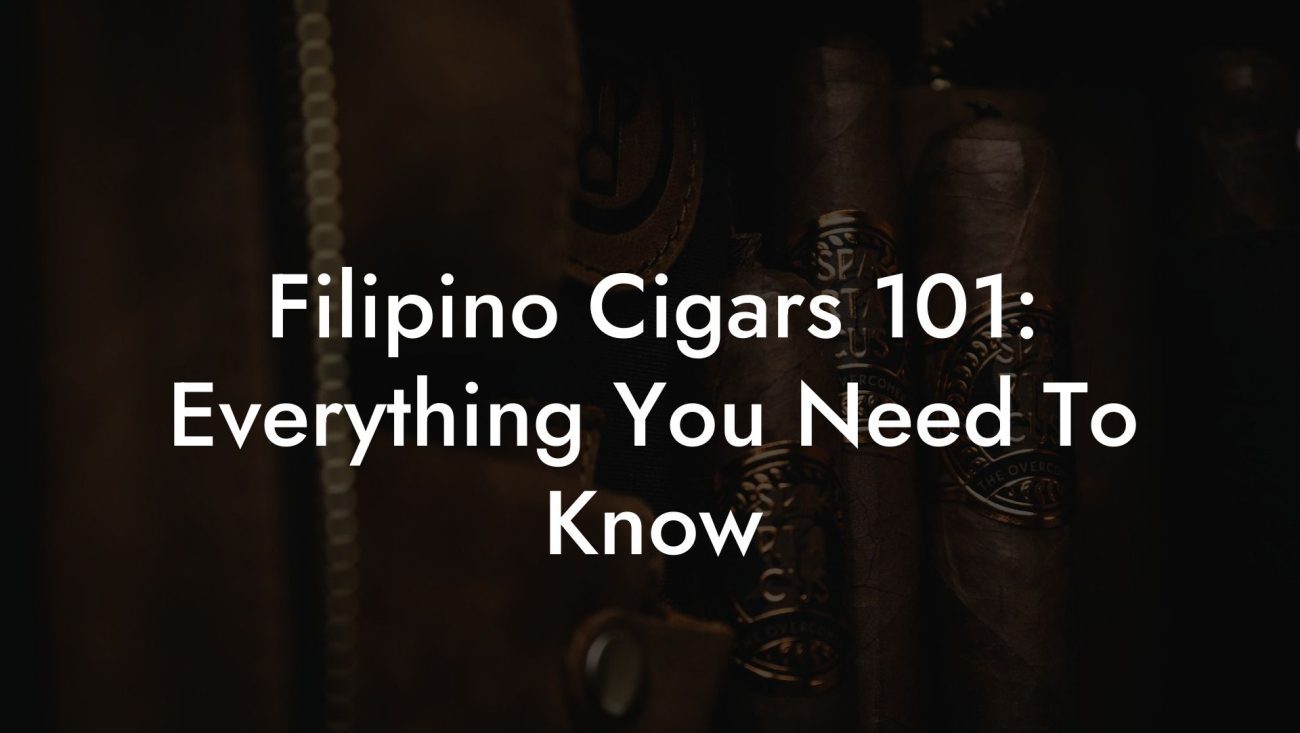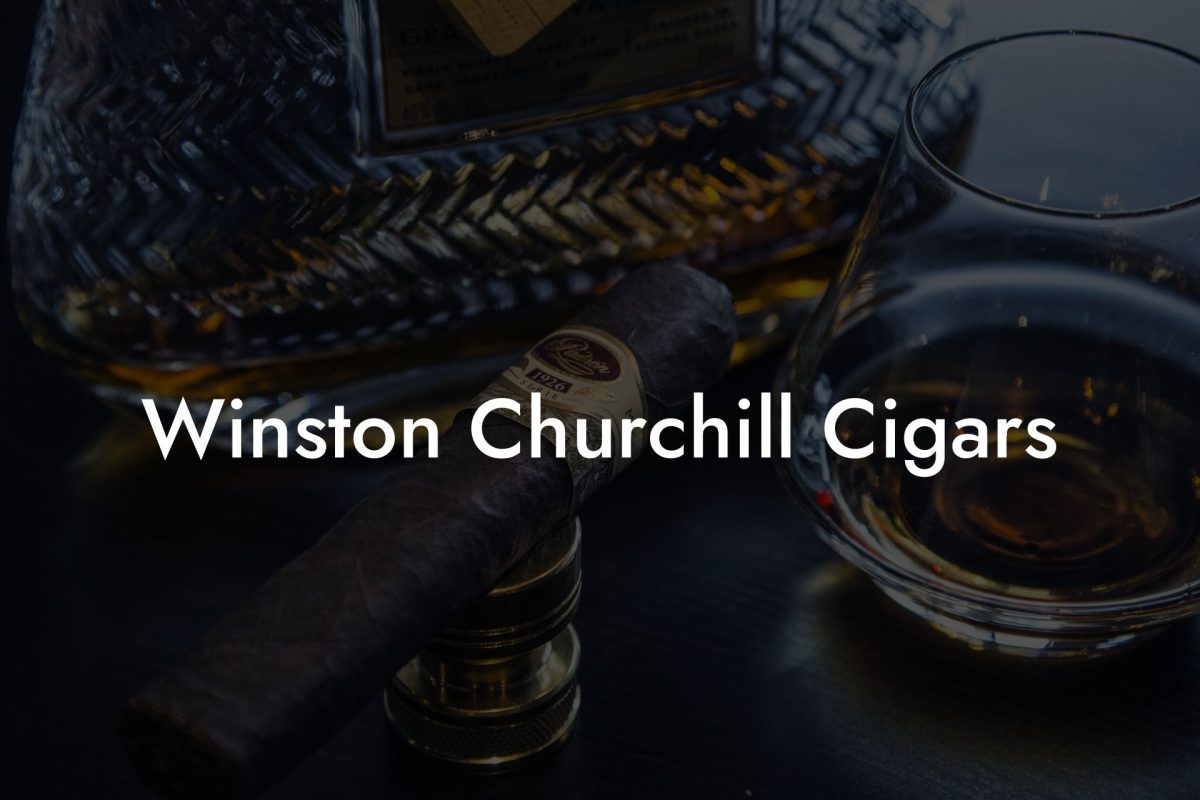Cuban cigars have long been the stuff of legends, draped in mystique and synonymous with luxury and rebellious indulgence. But if you’ve ever found yourself wondering why these iconic stogies are shrouded in legal mystery, buckle up for a wild ride through political intrigue, economic blockades, and jaw-dropping cultural maneuvers. This isn’t your grandpa’s history lesson, it’s a bold exploration tailor-made for the savvy Gen-Z and millennial connoisseur. Let’s light up the history and filter through the smoke to figure out: Why Are Cuban Cigars Illegal?
Why Are Cuban Cigars Illegal Table of Contents
The Origins: A Passion for Cigars and a Legacy of Craftsmanship
Cuban cigars and the Birth of an Embargo
So, Why Are Cuban Cigars Illegal?
The U.S. Embargo: A Legacy of Politics and Paranoia
The Economics Behind the Smoke: Trade, Profit, and Piracy
Cultural Impact: Myths, Memories, and the Modern Stogie
The Smuggling Saga: Underground Markets and Clandestine Routes
Global Perspectives: Cuban Cigars Beyond U.S. Borders
Controversies and Debates: Is It Time for Change?
The Rise of Alternative Markets: Navigating a Changing Landscape
Looking Ahead: Future Trends and Global Shifts
Resources and Community Support: Your Next Steps
Commonly Asked Questions About Cuban Cigars
Your Next Steps: Embracing the Complexity of a Storied Tradition
The Origins: A Passion for Cigars and a Legacy of Craftsmanship
Long before the headlines and heated debates about international policies, Cuba earned its reputation as the cigar capital of the world. Nestled in the Caribbean, the island’s ideal climate, rich soil, and age-old traditions fostered a robust culture centered around hand-rolled, high-quality cigars. Every puff of a Cuban cigar is a nod to centuries-old craftsmanship and a celebration of artisanal dedication.
Cuban cigars aren’t just a product, they’re a cultural phenomenon. Growing up in a world ruled by instant gratification, even today, there's a palpable allure to the slow-burning ritual of cigar smoking. More than ever, this craftsmanship is not just admired, but revered as an art form, sparking conversations from smoky lounges in Havana to trendy urban hotspots in New York City.
In Cuba, every cigar is a masterpiece, meticulously hand-rolled with passion and precision by skilled torcedores. The legacy of these master artisans is imbued with national pride and a history of resilience. And as you journey through the labyrinth of laws and embargoes that have shaped Cuban cigars' fate, you’ll understand how deeply intertwined history, art, and politics really are.
Cuban cigars and the Birth of an Embargo
To fully grasp why Cuban cigars are illegal in certain parts of the world, particularly in the United States, we need to rewind the clock to the Cold War era, a time of intrigue, suspicion, and relentless ideological battles. When Fidel Castro’s Cuban Revolution upended the status quo in 1959, it wasn’t just political power that changed hands; it was the future of Cuba’s entire economic landscape, including its prized cigars.
Shortly after Castro came to power, the U.S. government began to view the revolution through a frosty lens. The nationalization of industries, including the cigar manufacturing sector, and Cuba’s budding relationship with the Soviet Union were red flags that led to the imposition of trade restrictions and economic sanctions. The infamous U.S. embargo, initially set in motion in the early 1960s, was intended to isolate Cuba economically, and Cuban cigars became one of its most symbolic casualties.
The U.S. embargo wasn’t just about politics, it was also about controlling a market that was once synonymous with opulence and aspiration. When you can’t legally enjoy the silky smooth smoke of a Cuban cigar, you understand that you’re not just missing out on a luxury product; you’re caught up in a geopolitical chess game, where every move, a puff, a purchase, or even a glance in a cigar aficionado magazine, carries hidden meaning.
Today, while the political landscape has evolved, those historical chains continue to tighten the narrative around Cuban cigars, making them elusive treasures for many who cherish tradition, rebellion, and a dash of mystery.
So, Why Are Cuban Cigars Illegal?
At the heart of the matter lies the U.S. embargo, which has made the legal acquisition and distribution of Cuban cigars in the United States nearly impossible for decades. The embargo was a strategic move designed to put economic pressure on the Cuban government, and Cuban cigars quickly became emblematic of the broader restrictions imposed on trade and travel.
The legal systems in place are a product of decades of political maneuvering. Despite subtle modifications over the years, including periods of eased tensions and hypothetical "gifts" of travel allowances, the embargo remains intact on paper. The legal status of Cuban cigars is, therefore, not just a matter of tobacco regulation, it’s a symbol of U.S.-Cuba relations.
For those who appreciate the finer things in life, it’s bittersweet. The celebrities, socialites, and connoisseurs who have historically savored Cuban cigars now face an ironic challenge: the tobacco crafted with love and tradition has become the forbidden fruit in one of the world’s largest markets.
But let’s be clear, the term “illegal” is steeped in complexities. Cuban cigars are not universally illegal worldwide; rather, their status is embedded in specific political and economic policies, affecting only certain markets in countries like the United States. Globally, Cuban cigars may be celebrated and traded freely, a testament to how legalization and prohibition can hinge on the interplay of national interests.
The U.S. Embargo: A Legacy of Politics and Paranoia
To truly understand the present, we need to dive deeper into the political labyrinth that gave birth to the embargo. The early 1960s were a time when the U.S. was locked in a high-stakes ideological battle with socialist regimes. The imposition of the embargo was less about cigars per se and more about sending a robust message, a refusal to engage with a government that had boldly defied American influence.
The embargo was initially a series of trade restrictions that evolved into a comprehensive economic blockade. Political rhetoric during this period was charged with anti-communist sentiment, and Cuba, as one of the last vestiges of Cold War defiance in the Western Hemisphere, was singled out. Cuban cigars, being one of the country's most famous exports, inadvertently became a casualty of this political war.
For decades, the embargo has sparked heated debates among policymakers, historians, and, of course, cigar lovers. Proponents of the embargo argue that it is a necessary stand against a regime that has historically suppressed freedom and human rights. Detractors, however, see it as an outdated policy that continues to hurt not only Cuba’s economy but also American consumers who are deprived of one of the world’s most celebrated luxury items.
Even during periods when political winds shifted and calls for normalization grew louder, the embargo maintained its grip. This complicated dance of policy changes has left Cuban cigars in a state of legal limbo, illegal for American commerce, yet undeniably desirable, bustling with underground allure.
The Economics Behind the Smoke: Trade, Profit, and Piracy
The economic ramifications of keeping Cuban cigars off the U.S. market are as rich and layered as the tobacco itself. U.S. consumers have developed an almost pathological yearning for what they can’t have, thanks to the allure of the forbidden. The scarcity created by the embargo has inadvertently inflated prices on the black market, driving demand and spawning a thriving underground trade.
In today’s global economy, Cuban cigars have achieved cult status. While the U.S. embargo limits legal channels of distribution, the internet age has made it easier for enthusiasts to source these luxurious cigars through clandestine channels. However, with every high-end purchase made in secret, the risks grow and the allure of illicit trade intensifies.
It’s a classic case of supply and demand with a twist: when something becomes rare due to political constraints, it’s no longer just a product, it’s a status symbol. Stocks of Cuban cigars have, over time, turned into prized collectibles. Auctions and private deals now command eye-watering prices, making them a coveted asset rather than just a smoke.
The economic impact stretches beyond mere profit margins. The embargo has led to innovative smuggling operations, where ingenious routes and covert networks are employed to bypass international law. These networks, sometimes glamorized in films and novels, are a gritty reminder of how political policies can sometimes backfire, spawning unintended consequences in the shadows of global commerce.
In a world where commerce and consumer desire intersect with international law, the Cuban cigar becomes an emblem of both high art and high risk.
Cultural Impact: Myths, Memories, and the Modern Stogie
While the legal and economic aspects weigh heavily on the narrative, culture is where the heart truly smokes. Cuban cigars have been celebrated in literature, cinema, and music, often symbolizing rebellion, sophistication, and a no-holds-barred approach to life. Think of James Bond flicks, rock-star lifestyles, and smoky jazz clubs where every puff carries a story.
For many, the prohibition of Cuban cigars is a reminder of a bygone era of strict regulations and governmental overreach, a time when political decisions dictated personal indulgences. It’s no wonder that the allure of the banned cigar has led to an entire subculture of enthusiasts who take pride in possessing something that serves as both conversation piece and badge of honor.
More recently, social media platforms have given rise to a new generation of cigar aficionados who blend retro charm with modern cool. They share their finds, recount wild stories of secret purchases, and engage in thoughtful debates about whether the U.S. should finally move past outdated embargoes. This vibrant community thrives on the idea that defiance can be stylish, and that owning a piece of outlaw history, a Cuban cigar, makes you a part of something larger than the product itself.
Ultimately, the cultural impact of Cuban cigars goes far beyond a mere dislike for governmental rules. It’s about the power of tradition meeting modern desire, the audacious celebration of history, and the undeniable fact that sometimes, the best things in life are exactly what you’re told you can’t have.
The Smuggling Saga: Underground Markets and Clandestine Routes
If you thought that the only impact of the embargo was legal restriction and political debate, think again. The reality is far more cinematic, a tale of secretive operations, midnight deals, and daring smuggling routes that would give any spy thriller a run for its money.
The journey of a Cuban cigar from its origin in the lush tobacco fields of Cuba to a hidden stash in a smuggler’s trunk is nothing short of epic. Over the decades, ingenious networks have emerged to help addicts of luxury bypass the legal morass. These black-market routes, often crossing treacherous waters and dodging vigilant customs authorities, have become a critical component in the saga of Cuban cigars.
Take, for example, the infamous “rum-running” operations of the 1960s and ’70s, where smugglers employed coded language, secret compartments in cargo ships, and even decoy shipments to trick border patrols. While the romance of these escapades might appeal to a modern audience fascinated by the lure of underground cultures, the reality is that these operations are risky and fraught with legal peril. Every illicit transaction carries with it a story of cunning and nerve, and yes, a hefty dose of danger.
What’s more, social media has given modern smugglers a platform to flaunt their daring maneuvers in the form of cryptic posts and carefully curated images. While we’re not endorsing any illegal behavior here, it’s a fascinating display of how the world adapts and evolves when something as iconic as Cuban cigars is locked behind political barricades.
The underground trade is a double-edged sword, it keeps the demand alive and fuels the mystique of Cuban cigars, all while creating an illicit economy that straddles the line between legend and legal risk. In a sense, every illegal cigar that finds a way into the hands of a die-hard enthusiast is a silent nod to the complex interplay of politics, economics, and pure, unadulterated desire.
Global Perspectives: Cuban Cigars Beyond U.S. Borders
Although the U.S. has taken a firm stance against Cuban cigars, the story is far different on the international stage. In countries across Europe, Asia, and Latin America, Cuban cigars enjoy legal status, cultural acceptance, and even governmental support as a national treasure.
European markets, for example, have embraced Cuban cigars as both a luxury item and a symbol of refined taste. In these markets, a fine Cuban cigar can be found in upscale lounges, exclusive clubs, and even on the menus of trendy gastropubs. The cultural resonance in these regions stands in stark contrast to the politically charged atmosphere in the United States.
This global discrepancy highlights the key point: Cuban cigars are illegal only within certain political frameworks. The laws that restrict them in the U.S. are not about the cigars themselves, they are about diplomacy, economics, and a complex history of international relations that date back decades. When you step outside the confines of one nation’s policies, you realize that Cuban cigars tell a story of passion, artistry, and enduring legacy.
Understanding this global perspective is key for any connoisseur. It not only enriches your appreciation for the art of cigar-making but also opens your eyes to the intricate ways in which cultural artifacts are governed by the ebbs and flows of international politics.
In a world increasingly defined by global connectivity, and where boundaries seem less rigid than ever, the evolving narrative of Cuban cigars serves as a reminder that sometimes, passion transcends politics.
Controversies and Debates: Is It Time for Change?
The debate surrounding Cuban cigars is as heady as the smoke they produce. Over the years, voices on both sides of the aisle have argued passionately about whether the embargo should continue to stifle access to one of the world’s most beloved luxury commodities.
Advocates for lifting the embargo argue that the policy is outdated, a relic of political theatrics that no longer aligns with today’s globalized economy and cultural norms. They point to the fact that millions of Americans travel abroad each year and can legally enjoy a Cuban cigar on foreign soil, only to be denied the same pleasure at home. This inconsistency is often cited as a glaring example of policy that is out of touch with modern values.
On the other hand, staunch defenders of the embargo maintain that it remains an essential tool to exert political pressure on the Cuban government. They believe that business deals, no matter how glamorous they might seem, carry significant geopolitical weight. For them, every denied sale of a Cuban cigar is a small strategic victory in the long-standing battle of ideological supremacy.
Amidst this tug-of-war are practical concerns as well: How do you balance the allure of a centuries-old craft with the urgent demands of modern politics? Are we, in our pursuit for sophistication and luxury, inadvertently endorsing policies that restrict free trade and civil liberties?
The dialogue is ongoing, and while no definitive answer exists just yet, it’s clear that the debate tapers far beyond the confines of cigars alone. It touches on questions of national sovereignty, market freedom, and, ultimately, whether outdated policies should continue to govern our increasingly interconnected world.
The Rise of Alternative Markets: Navigating a Changing Landscape
With the embargo in place, the consumer demand for Cuban cigars has spurred a series of fascinating market adaptations. The internet has become a bustling marketplace of its own, where digital storefronts and private clubs cater to those in the know. These alternative channels provide a workaround for a system that is as much about political statements as it is about taxation and trade.
Modern technology has rendered traditional supply chains nearly obsolete, with online auctions, encrypted communication, and discreet shipping methods all playing a role in keeping the legendary Cuban cigar alive in a digital age. From carefully curated social media profiles to exclusive members-only websites, the market for Cuban cigars has proven to be as adaptable as it is mysterious.
Not only do these alternative markets satisfy cravings for exclusivity, but they also connect diverse communities, bringing together seasoned aficionados, curious newcomers, and even younger consumers who rarely passed up a chance to debate urban fashion trends. This grassroots digital network transcends borders, uniting people with a shared passion for a piece of history that’s both rebellious and refined.
As globalization continues to reshape the way we think about commerce, the future of Cuban cigars in the digital age remains a captivating topic. Will innovatively secretive online hubs eventually force older policies into reconsideration, or will legal and political forces continue to shadow these lucrative underground networks? Only time will tell, but the story is far from over.
Looking Ahead: Future Trends and Global Shifts
The story of Cuban cigars is not just a static relic of the past, it’s an evolving narrative that intersects with modern trends, international diplomacy, and the ever-changing landscape of commerce. As progressive voices call for reform and as emerging markets question traditional power plays, the possibility looms that the script might finally flip.
Recent discussions among policymakers, cultural commentators, and even business moguls have opened the door to a potential future where the legal status of Cuban cigars could be reexamined. While the embargo still stands, the winds of change are slowly brushing its edges. Younger generations, with their ever-present demand for authenticity and freedom, are increasingly vocal about dismantling what they see as outdated and restrictive policies.
Globally, trends in trade liberalization, diplomatic re-engagement, and consumer rights are challenging the status quo. With Cuba itself taking steps to modernize its economic infrastructure and embrace tourism and foreign investment, the future may one day see Cuban cigars emerging from the shadows as fully recognized commodities within markets like the United States.
However, any such change will not come easily. Political inertia, entrenched interests, and national pride all form powerful barriers to reform. Change on this scale is often incremental, marked by small victories that eventually coalesce into a paradigm shift. For now, the Cuban cigar remains both a treasured delight and a symbol of global conflict, a reminder that even the simplest pleasures can become entangled in the complexities of international law.
For those tracking these developments, one thing is certain: the future will be as unpredictable and nuanced as the flavors of a perfectly aged Cuban cigar. And just like the ritual of lighting one up, waiting for that break in the tension is all part of the experience.
Resources and Community Support: Your Next Steps
So, you’re probably sitting there, cigarette in hand (or maybe vaping discreetly), buzzing with questions about the evolving saga of Cuban cigars. Whether you’re just a curious observer or an aspiring connoisseur ready to explore underground channels, there are plenty of resources out there to fuel your journey.
First, immerse yourself in the rich history behind the craft, read books, peruse documentaries, and follow reputable cigar review sites to get an honest look at the legacy of Cuban tobacco. Join forums and social media groups where aficionados gather to share their secret tips, successful finds, and cautionary tales from the black market.
Next, consider attending local cigar events, tastings, and conventions. Not only will you meet fellow enthusiasts, but you’ll also gain firsthand insight into the debates, trends, and legal intricacies that shape this captivating industry. There’s nothing quite like the vibe of a smoke-filled lounge where every puff is a conversation starter, a place where pop culture meets deep history.
Lastly, keep an eye on the larger geopolitical stage. Changes in trade policies, diplomatic moves, and new regulatory adaptations could ultimately redefine the legal status of Cuban cigars. Reliable news outlets, think tanks, and government briefings are excellent resources to stay updated on any shifts that might impact your next illicit, or maybe someday perfectly legal, cigar purchase.
Empower yourself with knowledge and join a vibrant global community that understands that the allure of Cuban cigars is not solely about the smoke, it’s about history, politics, art, and rebellion, all rolled into one.
Ready to journey deeper into this storied world? The next chapter of your exploration is just a click away. Connect with fellow enthusiasts, share your experiences, and always remember: sometimes, the best stories are found on the other side of a little controversy.
Commonly Asked Questions About Cuban Cigars
Whether you’re baffled by the historical intricacies or simply curious about the modern implications, here are some burning questions answered for you.
1. Why are Cuban cigars illegal in the United States?
Cuban cigars are deemed illegal in the United States primarily due to the longstanding U.S. embargo against Cuba. This political tool, originating from Cold War tensions and anti-communist policies, restricts trade between the two nations, turning Cuban cigars into a luxury item that can only be legally enjoyed outside U.S. borders.
2. Is the embargo on Cuban cigars still active?
Yes, despite various debates and incremental policy adjustments over the years, the embargo remains largely in place today. While some travel exceptions exist, Cuban cigars cannot be legally imported into the U.S. under current trade restrictions.
3. Are Cuban cigars illegal worldwide?
No. The illegal status primarily affects U.S. markets due to the specific sanctions and embargo policies enforced by its government. In many other countries, Cuban cigars are celebrated as a premium luxury product and are fully legal.
4. How has the embargo impacted the global market for Cuban cigars?
The embargo has led to the emergence of black markets, resulting in inflated prices and secretive distribution channels in the U.S. Meanwhile, in legal international markets, Cuban cigars continue to be appreciated and traded legally, further enhancing their mystique and desirability.
5. Can the legal status of Cuban cigars change in the future?
There is ongoing debate about the future of U.S.-Cuba relations. Political, economic, and social pressures suggest that reforms could occur, but any change would require significant policy shifts and careful negotiation given the complex history behind the embargo.
6. Do all Americans share the same view on Cuban cigars and the embargo?
Opinions can vary widely. Some see the embargo as an outdated relic that denies them cultural and economic freedom, while others view it as a necessary measure to apply pressure on the Cuban government. The debate continues to evolve as new generations bring fresh perspectives to the table.
7. Are there legal ways for U.S. travelers to enjoy Cuban cigars?
Yes, U.S. travelers can legally purchase and enjoy Cuban cigars while abroad. However, bringing them back into the U.S. is still a legal gray area under current regulations.
Your Next Steps: Embracing the Complexity of a Storied Tradition
Navigating the labyrinthine world of Cuban cigars is an exciting journey where passion meets politics, tradition intertwines with modernity, and every puff carries a story of defiance. If you’re ready to immerse yourself further, here's how to continue your exploration:
- Deepen Your Knowledge: Dive into books, documentaries, and online courses that explore the history of Cuban cigars, U.S.-Cuba relations, and the global tobacco trade.
- Join the Community: Engage in conversations on forums and social media groups where enthusiasts share tips, trade secrets, and updates on evolving policies.
- Attend Cigar Events: Whether virtually or in person, cigar tastings, cultural events, and conventions offer firsthand exposure to the people and traditions that keep the legacy alive.
- Stay Informed: Follow news outlets and policy briefs that focus on international trade and diplomatic relations, this way, you’ll be prepared to witness and understand any paradigm shifts that affect Cuban cigars.
- Advocate Wisely: Use your informed voice to engage in discussions about outdated policies and support movements that promote cultural exchange and responsible trade reform.
Every journey begins with curiosity and a spark of rebellion against the ordinary, and the saga of Cuban cigars is no exception. Let this be your invitation to explore, question, and immerse yourself in a narrative that is as rich, complex, and unforgettable as the cigars themselves.
Remember, whether you’re savoring a legal alternative or dreaming of the smooth taste of the forbidden, the story of Cuban cigars is a living testament to the power of tradition, the allure of rebellion, and the eternal human pursuit of life’s finest pleasures.
Now that you’re armed with the history, the economics, and the cultural heartbeat of Cuban cigars, take the next step: connect with communities that share your passion, educate yourself on the nuanced politics surrounding the embargo, and perhaps most importantly, savor the journey with a dash of humor and a whole lot of style.
Your exploration of Cuban cigars isn’t just about a product, it’s about understanding how history, politics, art, and personal freedom intertwine. Embrace the complexity, celebrate the heritage, and let your curiosity fuel your next adventure. The world of Cuban cigars awaits, smoke it if you got it, legally or otherwise, and keep asking the tough questions.


